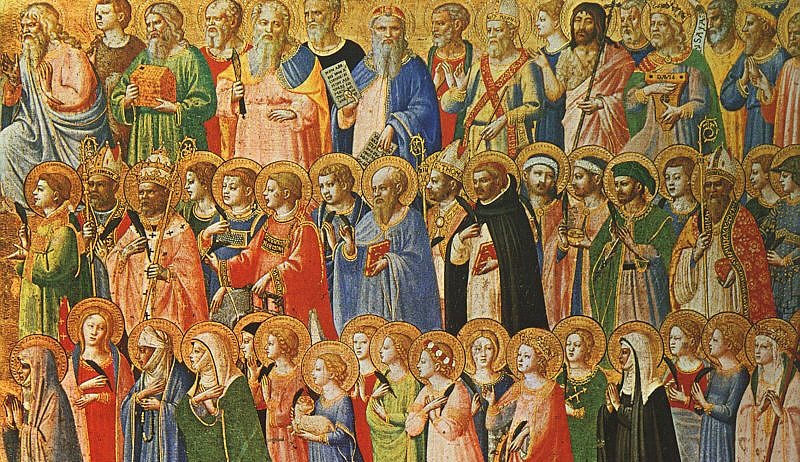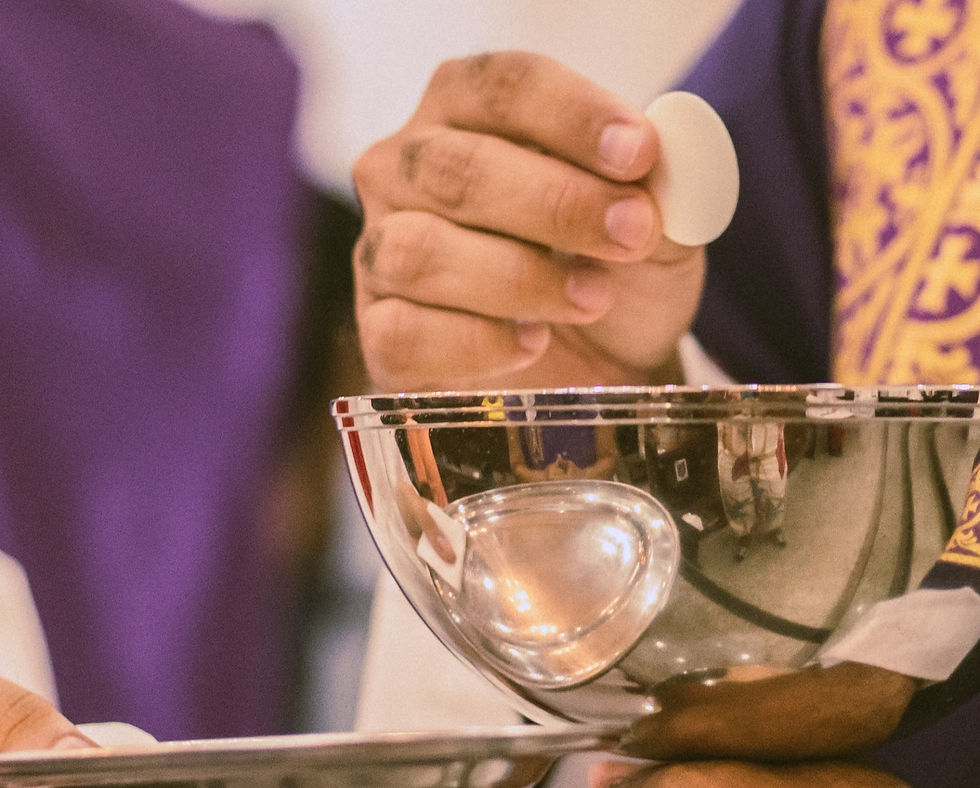The Lie of Performance Based Prayer
- Jan 30, 2024
- 5 min read
Updated: Feb 16, 2024
"Apart from me you can do nothing" Jn. 15:5

In the last week or so I have been reflecting a lot on what prayer is and how prayer works. A year ago my prayer life was almost nonexistent. I knew I should be spending time with the Lord in scripture every day, but I could never quite latch on to that habit. I was in this cycle of having a week of great prayer and then a month of no prayer, then a week of great prayer, and a month of nothing, etc. And since I began college this is what my spiritual life looked like. It was extremely inconsistent and for some reason I just couldn’t get it. I couldn’t figure out how to pray well and I didn’t really understand what my prayer should look like.
That all changed about seven months ago when I started going to morning Mass outside of my Sunday obligation and receiving the Eucharist much more frequently. But why is that? Why did consistent attendance at Mass and consistent reception of the Eucharist completely transform my life of prayer?
“Blessed are the poor in spirit, for theirs is the kingdom of heaven.” Matthew 5:3
This was what I've been praying with the last few days. It’s the first of the beatitudes, and the fact that it comes first is no accident. Humility is key.
To be poor in spirit is to be humble. To realize, before the Lord, that we are nothing. And not in the sense that we’re terrible and horrible and have no value, but to realize that we are good because He created us that way and without Him we can do nothing.
It is to realize that we need the Lord and His grace. Without His love we have nothing.
With my consistent reception of the Eucharist this last summer I had a complete mind shift. Prayer was no longer about checking the box of what I should do to be holy. It wasn’t about performing so that I could appear to be practicing my faith. It was about realizing that I can do nothing on my own. That each moment of every day I am in dire need of the Lord’s mercy and grace and He gives it to me in the most intimate and direct way in the Eucharist.
Then, having received His love in the Eucharist on that day or week, I knew that He had given me all the grace I needed through that. And because the Lord had loved me so intimately, I wanted to pray. I wanted to devote time to getting to know with the Lord in scripture. I looked forward to the time I would spend in prayer. My weekly Holy Hour in the Adoration chapel at my parish became the best part of my week, even if it meant that I had to go late at night.
Before anything else, we must be poor in Spirit. We must humble ourselves before Him, realizing that we cannot do this without him, in order to receive the grace of prayer.
“He who humbles himself will be exalted; humility is the foundation of prayer, only when we humbly acknowledge that ‘we do not know how to pray as we ought,’ are we ready to receive the gift of prayer.” (CCC 2559)
This Catechism paragraph was integral to my change in mindset when it came to prayer. It took all of the pressure off because I don’t need to know how to pray in order to pray.
My prayer can simply be, “Lord, I don’t know what this is supposed to look like, but I’m here, be with me now.” And He will work in that.
In fact, I think he works so much in a prayer like that over a complex prayer of pride which we feel will prove our holiness because it is the most real prayer we can pray. It is the most honest we can be with God, to admit that we don’t know. To admit just how much we need Him.
Because if we don’t need Him there is no reason for Him to give Himself to us in prayer or the Sacraments. If we don’t need Him the Sacraments are completely unnecessary. If we don’t need Him, Scripture has no place in our life. If we fill up our prayer with proofs that we don’t need Him, then of course He will not come because He will not force His way in. He does not force us to need Him.
It is when we realize that we need Him that prayer begins to truly bear fruit in our lives. Because when we admit to Him that we know we are nothing without Him, He can come in and lift us up. And it is then that we can learn to rely on Him completely. It is then that we begin to see His grace in our lives, because when we realize our need for His grace we are able to receive it and cooperate with it more freely.
“Liturgy must be need-based. In your own faith life the liturgy must be an uncompromising and unequivocal need of your soul, so that you could say, ‘I need the liturgy! I need what it offers on a daily basis. I can’t imagine life without it.’” (Bill Keimig)
And so this is now how I approach the Sacraments. As I walk down the aisle to receive Communion, the prayer in my heart is, “Lord I am not here because I am worthy, but I am here because I am in humble need of your mercy.” And it makes receiving Christ at Mass all the more meaningful. I receive Him not despite my weakness, but because of it. It is because of my weakness that Christ instituted the Eucharist, and it is because of my weakness that I am given the opportunity to receive Him daily.
It is the same for reconciliation. I am not worthy of the Lord’s forgiveness, yet in His mercy, He has given me a way to receive it. He has given me a way to experience His unconditional love. Not just to know about His love for me, but to tangibly receive it.
The same goes for every Sacrament. I do not receive them because I am worthy or holy or better than anyone else. I receive them because I know how deeply I need them. Because without Him I am nothing.
Realizing your imperfection and limitation is not as confining as it may seem. In fact, what I’ve found is that realizing my limitations when it comes to prayer has been the most freeing experience of my life. It freed me from the lie that I have to know everything and that I have to prove my holiness. And in that I am able to learn how to pray in a whole new way.
I think prayer is a constant learning process. I am and will always be learning to pray. There will be days where I go through the motions. There will be Masses I go to where as soon as I’m standing to pray the Our Father I’ll realize that I just daydreamed through the entire Consecration. But those are the moments that will allow me to stay humble. They’re the moments that will remind me just how much I still need Him. And, because of that, those moments will be a grace in and of themselves.




Comments